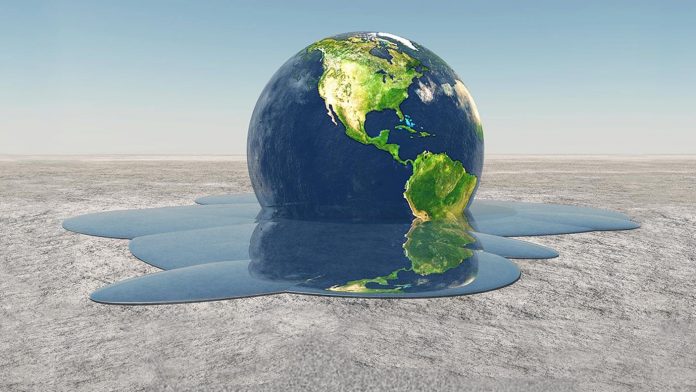This article is written by Yash Sharma, from Vivekananda Institute of Professional Studies, Indraprastha University, New Delhi. This article establishes a relationship between the COVID-19 pandemic and environmental quality. Based on that relation it talks about recent changes in environmental laws.
Table of Contents
Introduction
What the world is experiencing right now due to the Covid-19 virus can be only one among many such an upcoming crisis. On Earth, we all are part of a single ecosystem and all lives are connected. This outbreak has reminded everyone that the fact that humans, animals, plants, and environmental health and well-being are all deeply connected and get highly affected by each other’s activities. This calls for an urgent need for a sustainable approach inclusive of all the spheres of life on the Earth.
Various aspects that define the relationship between coronavirus and the environment is being established in this article. This article mentions the importance of reforms in environmental laws in the contemporary situation. Also, the Governments in many countries have turned a blind eye toward the violation of the environmental regulations which will affect humans all around the globe. Therefore, all these aspects are discussed in this article.
Covid-19 and the environment
The human race has been moulding all the corners of the world, even right now as we speak of it from land to oceans. As already stated we are deteriorating the condition of the environment and human health is getting endangered as well. It is a fact that around seventy-five percent of newly emerging diseases are zoonotic. Zoonotic diseases are those that originated from some animals either wild or domesticated then transferred to humans. The United Nations Environmental Programme has been working in close proximity with scientists to create a link between ecosystem stability, the environment, and human health including zoonotic diseases. In recognition of this interconnected life on Earth, the need for a biodiversity framework is important right now.
After the crisis ends, the governments may restart approving packagers for development but we shall also need to remember the need for sustainable development. We must promote green investments, these include renewable energy, smart housing, green public procurement, and public transport.
The International Organization for Migration has stated major concerns due to the coronavirus pandemic. It is mentioned that in the contemporary world many human colonies depend on migration along with climatic conditions for survival but this pandemic has caused a haul on such migration whether international or intranational. The worst part is that it is not predictable when the solution to the crisis will be found. The current emergency provision applied in most of the countries in different ways can not be determined for how long will they be enforced.
Impact on wildlife
The origin of the coronavirus hasn’t been clear yet but what is clear is that it originated from some animal. In the present scenario, the problem is not the animals but the manner of interaction between humans and animals. Animals in their natural habitat have been living along with humans for centuries. But when such an animal is displaced from the wild and domesticated along with pet animals, that results in a whole new species, which in result affects the humans. From time to time wildlife experts and scientists have mentioned their concerns regarding the health risk associated with some vet markets and animal markets.
The next important aspect related to wildlife at high risk is ‘ecotourism’. Ecotourism means when there is a responsible journey of humans to wildlife habitat areas that conserves the ecosystem and well-being of native people. By limiting tourism in the forms of limited human interaction and infrastructural development it nurtures cultural awareness and respect. The decades-long sustained ecotourism has been shut down due to emergency provisions being enforced. Due to this pandemic, ecotourism has made a lasting impact on tourism and communities dependent on it. An example of this is that great ape tourism sites have been shut ever since the starting of the crisis. The great apes can transmit coronavirus from humans. Ever since the borders have been shut down and international travel has been stagnant.
Changes in environment laws
When the whole world is suffering from the pandemic many governments have given green signals to environmental law reforms destructive to nature. The actions are irrational and irresponsible as it will further worsen the ill effects of environmental degradation. In a time like this, the COVID-19 has proven the need for a safe, clean, and sustainable environment and living conditions.
A direct relation of environment quality is scientifically proven. Areas affected with higher pollution levels are prone to an increase in premature death due to COVID-19 and death rates are 15% higher in high pollution areas than in low pollution areas. Similarly, dirty water is harder to contaminate for stopping the spread of coronavirus. Scientists have established a relationship between the spread of such viruses and types of society prone to these diseases. They have concluded that these diseases emerge and spread in zoonotic sites thrice more. Scientists have shown concerns that continued deforestation, industrial agriculture, illegal wildlife trade, climate change, and other activities degrading the quality of the environment will result in more such pandemics and overall major human rights violations.
Many polluting companies are making an opportunity out of this crisis to further exploit the environment. In America, oil, gas, petrochemical, and other polluting companies are pressurizing the government to loosen the regulations that supervise and restrict these companies to pollute air and water. Their requests include waiving the legal requirements of the companies to monitor pollution levels and report data to regulators and associated bodies.
In the United States of America, a waiver of Mercury and Air Toxic Standards (MATS) has been finalized. These standards save more than ten thousand lives and avoid 130,000 asthma attacks every year. Those standards responsible for limiting the release of more than 80 harmful and toxic air pollutants from the coal-fired power plant have been removed. This step will be more crucial right now as we have already noticed the effects of air quality on coronavirus patients. This move is an abomination for the citizens of America.
Lockdown and rainforests
The impact of lockdown on nature and the environment is not completely positive, this narration of pandemic on nature is incomplete. When the cities and urban areas are benefitting in terms of environmental quality due to fewer people on roads, the story is almost opposite in rural areas and deep within the forests. The office of Conservation International has been receiving complaints from around the world of increased deforestation ever since the beginning of lockdown. The pattern of illegal deforestation, poaching, and mining could be seen all around the world although there is no exact data yet. Brazil and Colombia have seen an uprise in illegal mining and logging. The Philippines in Asia has also reported the same issues and wildlife trafficking as well. From Kenya incidents of bushmeat and ivory poaching has been reported, also, the production of charcoal production has been reported which has been banned since 2018. Cambodia has seen an uprise in numbers of poaching, illegal logging, and mining; and similar reports have been received from Venezuela and Madagascar.
The biggest concern in this whole situation is these emerging trends might not get reversed once the lockdown is lifted. Their effect on the economy might make it harder for governments and stakeholders to regulate and restrict these activities. Although, the destruction of rainforests would mean the destruction of the ecosystem of that place which also includes the indigenous people living and dependent on that ecosystem.
Environment (Protection) Amendment Rules, 2020
In India, the toll of coronavirus hasn’t been easy. India has one of the highest coronavirus cases among all the countries on the globe. The Ministry of Environment, Forest and Climate Change (MoEF) on February 3rd, 2020 issued a draft of amendments in rules to the Environment Protection Act, 1986 via Environment (Protection) Amendment Rules, 2020. The amendment in environment law in India can be related to COVID-19 as this will affect the citizens of India directly or indirectly.
As the names suggest that the rules and acts are enacted to protect the environment and there will be no violations. The reality is that although the said things are being realized the meaning has been completely changed. The regulations and norms are waived to the extent that even grave damages to the environment will not be a violation of the rules. The policy is being implemented in two phases. In the first amendment to rules, there will be a waiver of the backlog of violation cases from legal scrutiny. In the second phase, there will be a bill to EPA which may bring fundamental changes to the environmental violation norms. This way new projects may come up which may start working without proper assessment of the possible degradation of environmental quality.
The ministry on 14th March 2020 issued a notification which allowed the companies to start the project for six months and get the clearance of environmental violation after such time. This whole step violates the core purpose of the EPA. After only three months of making the notification, the ministry has received 207 applications for terms of reference (ToR) and 98 projects have applied for environmental clearance. An analysis of the applications received by the ministry shows that 69 percent of the applications are for mining projects and 15 percent applications are for construction and building, and more has to come.
Penalties for violation of rules
The reasoning is given by the draft cabinet in 2016 backing the amendment in which they stated that the monetary penalties will be levied on the violators and the obtained fine will be used for environmental restoration. For this purpose, an administrative mechanism shall be constituted to handle such cases. The collected money from the fines will be credite d to the consolidated funds of India that is the Government revenues. The collected money from the rampant violations will be high as per the Compensatory Afforestation Fund Management and Planning Authority (CAMPA) fund data. The received money will be at the cost of high environmental degradation. Back in 2016, a file note sheet related to the Environment Protection Act was filed by the ministry that stated that the current provisions in the Act only talks about criminal prosecution, negligible penalty, or closure of industry. These penalties according to the Government were not feasible and in most of the cases does not rule in favour of large public interest. The levied fines previously would not be enough to repair the damages.
Conclusion
COVID-19 pandemic globally has affected many people around the world. In many studies, scientists have proven that the outbreak is directly related to the nature of human interaction with animals and wildlife. Coronavirus is a zoonotic disease that originates in animals and transmits to humans. The reason for this is suggested by the experts is that when a wild animal is tamed and bred with domestic animals the result is often against nature’s original course. This human interference is the prime reason for the origin of zoonotic diseases and continued interruption will result in more such pandemics in the future.
The environmental quality is also an important aspect of such pandemics. It is shown that areas with bad air quality have more chances of death due to coronavirus. Water cleanliness is also proven to be a factor in the contamination of disease. There have been reports from around the world reporting the cases of illegal logging, poaching, and mining. While the world is in houses, rainforests have seen a surge in deforestation. Lockdown has been proven to be harmful to ecotourism as well which is important for the sustenance of local people and wildlife.
Various reforms in-laws around the world have given green light to further environmental degradation. Car industries in the USA is an example of this. Also in India proposed amendments in the Environment Protection Rules and suspected coming amendment in Environment Protection Act is an issue of concern. Most polluting industries such as gas, oil, coal, and petroleum industries also have been requesting and pressurizing the governments to ease the norms and rules regulating the pollution management in industries.
References
- https://www.scconline.com/blog/post/2018/03/09/environment-protection-amendment-rules-2018-notified/
- https://www.sciencedaily.com/releases/2020/10/201026220603.htm
LawSikho has created a telegram group for exchanging legal knowledge, referrals and various opportunities. You can click on this link and join:
 Serato DJ Crack 2025Serato DJ PRO Crack
Serato DJ Crack 2025Serato DJ PRO Crack











 Allow notifications
Allow notifications


